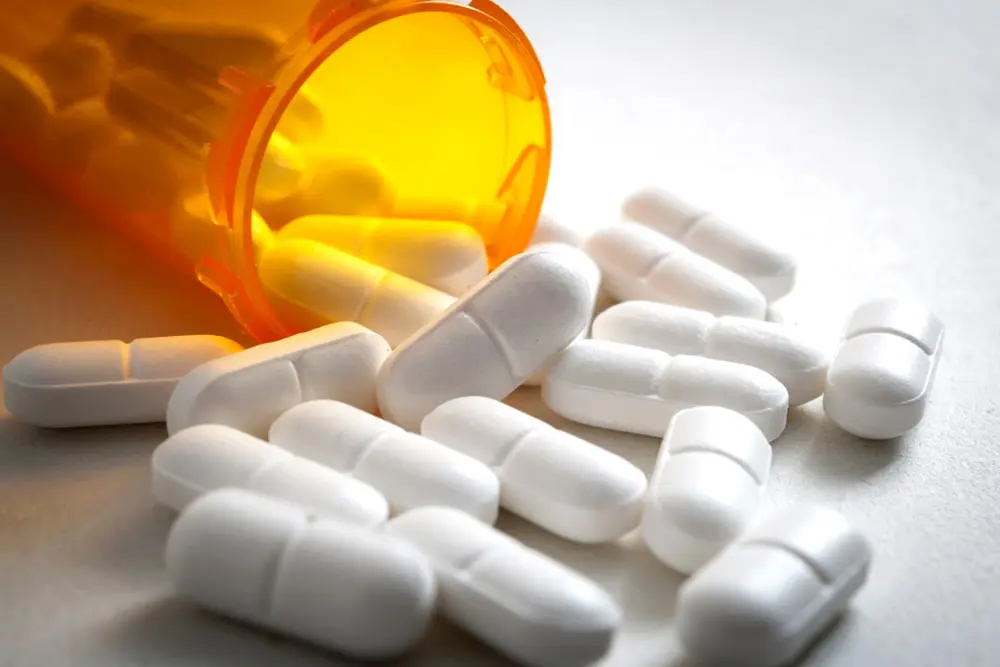How Long Does Hydrocodone Stay In Your System?

The effects of hydrocodone start less than an hour after taking the drug, and a 10-mg dose peaks in your system after about 1.3 hours. However, a lab test can detect this drug in your system for up to three months or for an even longer duration depending on several different factors.
Keep reading to learn how long it lasts in different parts of your body and to find out how genetics, age, metabolism, health conditions, and other factors affect how your body clears this drug.
How Long Does Hydrocodone Stay in Your Urine?
Hydrocodone stays in your urine for up to 4 days.
Drug tests that analyze your urine can detect this drug any time in that window. By this point, you no longer feel the brain effects of this painkiller, but it is still detectable in a urine screening.
How Long Does Hydrocodone Stay in Your Hair?
Hydrocodone stays in your hair for up to 90 days.
A lab test on your hair detects most drugs for a much longer period of time after the last time taken than drug tests that screen urine, blood, or saliva. That is because many drugs bind to the melatonin in your hair.
Once hydrocodone is in your bloodstream, it travels to the rest of your body including to the tissues and cells around the roots of your hair. Then, it gets into the follicle and finally into your strands of hair.
This process takes a while, and tests may not be able to detect hydrocodone in your hair until about two weeks after you ingest the drug.
How Long Does Hydrocodone Stay in Your Blood?
Hydrocodone is usually out of your blood within 1 day. The half-life of hydrocodone is about 3.8 hours. After 3.8 hours after the last time is taken, half of the drug has left your system. Within another 3.8 hours, another half of the drug leaves your system, and this half-life pattern continues until all traces of the drug are gone.
As a result, when doctors prescribe this drug, they usually recommend taking it every four to six hours. If you’re using hydrocodone for pain relief, your system typically needs another dose after that time.
However, if you take extended-release hydrocodone, the brain effects last longer, and you usually don’t need another dose for about 12 hours. Extended dose hydrocodone may be detectable in your blood for a longer period of time than the standard formula for this drug.
How Long Does Hydrocodone Stay in Your Saliva?
Hydrocodone is detectable in saliva for 12 to 36 hours after taking the drug. Typically, saliva tests mimic the results of a blood screening.
This rule applies to most drugs besides THC and benzodiazepines, and it’s relatively true of hydrocodone. The drug leaves your blood within about a day, and it lasts in your saliva for between half a day and a day and a half.
How Long Does Hydrocodone Stay in Lab Tests?
The length of time this drug stays in your system varies based on your genetics and the following factors:
- Weight — If you’re overweight, most drugs stay in your system longer than they do for average weight people because drugs bind to fat cells.
- Body fat — People with high percentages of body fat tend to keep hydrocodone in their system for longer than people with relatively low body fat.
- Metabolism — High metabolism eliminates drugs from your system faster than usual, but if you have low metabolism, hydrocodone tends to linger in your body.
- Liver function — Healthy livers clean systems more effectively and faster than livers with disease or other compromising issues.
- Frequency of use — Opiates like hydrocodone build up in fatty tissues, and if you use this drug frequently for a long duration of time, drug tests are likely to find hydrocodone in your system for longer than average.
- Experience with opioids — If you have a lot of experience with opioids, your tolerance may be higher, and generally, when you build up a tolerance to a drug, your body metabolizes it faster.
- Dosage — Higher doses of hydrocodone stay in your system for longer.
- Medical conditions — A variety of medical conditions including liver disease and metabolic issues can affect how long hydrocodone stays in your system.
- Hydration — If you’re well hydrated, hydrocodone may leave your system faster.
- Alcohol consumption — Alcohol can interact with hydrocodone and make the drug lethal.
- Other drugs or medications — While getting cleared from your system, hydrocodone uses the cytochrome P450 3A (CYP3A4) pathway. If you take drugs that inhibit CYP3A4, your body won’t break down the hydrocodone as quickly.
- Age — As you get older, your body has a reduction in CPY3A4 function, and hydrocodone leaves your system more slowly.
Treatment for Hydrocodone
You should not stop taking hydrocodone on your own. This drug can create intense withdrawal symptoms. To get help with hydrocodone or any other substances, call Spring Hill Recovery today. Our treatment specialists can provide you with the resources you need to reclaim your life.
- https://www.asahq.org/whensecondscount/pain-management/opioid-treatment/what-are-opioids/
- https://www.medicalnewstoday.com/articles/325877.php
- https://www.healthline.com/health/liver-function-tests
- https://www.usdrugtestcenters.com/drug-test-blog/242/how-long-do-drugs-stay-in-your-hair.html
- https://www.ncbi.nlm.nih.gov/pubmed/24039237
- https://www.ncbi.nlm.nih.gov/pmc/articles/PMC5139620/


